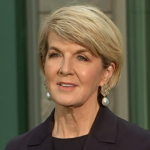Is access to left wing journalism now a human rights issue?
As mainstream media around the world tries to fit into the new media environment the generation and sharing of ideas continues in earnest. Simon Cowan how ‘big news’ is being replaced by the decentralised delivery of information and opinion.
Of the many comments on the troubles at Fairfax, the almost hysterical arguments in Dr Jeff Sparrow’s piece suggesting a failure of market rather than of journalism and Dr Sarah Joseph’s homily on human rights and journalism are some of the more concerning and require further scrutiny.
Neither Sparrow nor Joseph acknowledges in their calls for media diversity that nothing is stopping anyone, left or right, from public comment. In fact, from a humble blog through to the Global Mail or Business Spectator, it has never been easier to find a medium and start presenting your views. Never before has so much information been analysed from so many points of view and available to so many.
This equality of opportunity is protected and encouraged by the free market. It seems that underlying what Sparrow and Joseph and others like them are arguing is a desire for a government-mandated equality of outcome – an equal audience. Government mandating equal voices from each side of politics is really about winning the battle of ideas, not free speech or ensuring a free press.
Fairfax’s troubles stem from declining circulation numbers and an out-of-date business model. Its audience is being cannibalised by other providers (such as the ABC) and other platforms. Competition is forcing their revenues down and they must change their business model if they want to be viable.
News Ltd does not have higher circulation figures through right-wing trickery either – more people choose to buy News Ltd papers, though the moves towards an operational split for News Ltd may be evidence that neither Fairfax or News Ltd can now sustain a ‘big news’ model of newspaper ownership.
This is not market failure; it is the free market working. The market has no ideology or bias – it doesn’t champion one side of politics over the other. There is no need to rely on its ‘benevolence’ or ‘mercies’ or use cleverly worded surveys to show something’s worth – a good or service is worth what people are willing to pay for it, and those goods won’t be made if they cost more than people will pay. The market is a brutal, impartial barometer of what people really value.
‘Big news’ is being replaced by decentralised delivery of information and opinion in a myriad forms because newspaper circulation figures and media revenues are saying that is what people want. Why should the default response be government regulation to restore the old status quo?
For those who are worried about Gina Rinehart’s potential control of Fairfax there is a solution being ignored, perhaps wilfully. Fairfax is a public company; any person who values ‘plurality of opinion reflecting Australia’s true diversity’ can buy shares and vote to leave the Fairfax model untouched. Why don’t those who value ‘quality journalism’ put their own money up before volunteering mine?
Imploring the government to censor or control the media on vague ‘public interest’ grounds or to meet requirements for a plurality of views is an anathema to freedom. It’s remarkable that partisan politics has gone so far in Australia that ideological opponents are considered greater threats to liberty than government control of the media.
Simon Cowan is a Research Fellow in the economics program at The Centre for Independent Studies. He will be working on government industry policy and regulation. Prior to joining the CIS, he practiced Corporate Law for several years at a top tier law firm in Sydney and London after which he joined the NSW Government industry division. He has degrees in Commerce and Law from the University of New South Wales, as well as qualifications in Project Management.
Simon Cowan is Research Manager at The Centre for Independent Studies. Prior to joining the CIS, he practiced Corporate Law for several years at a top tier law firm in Sydney and London after which he joined the NSW Government industry division. He has degrees in Commerce and Law from the University of New South Wales, as well as qualifications in Project Management.














